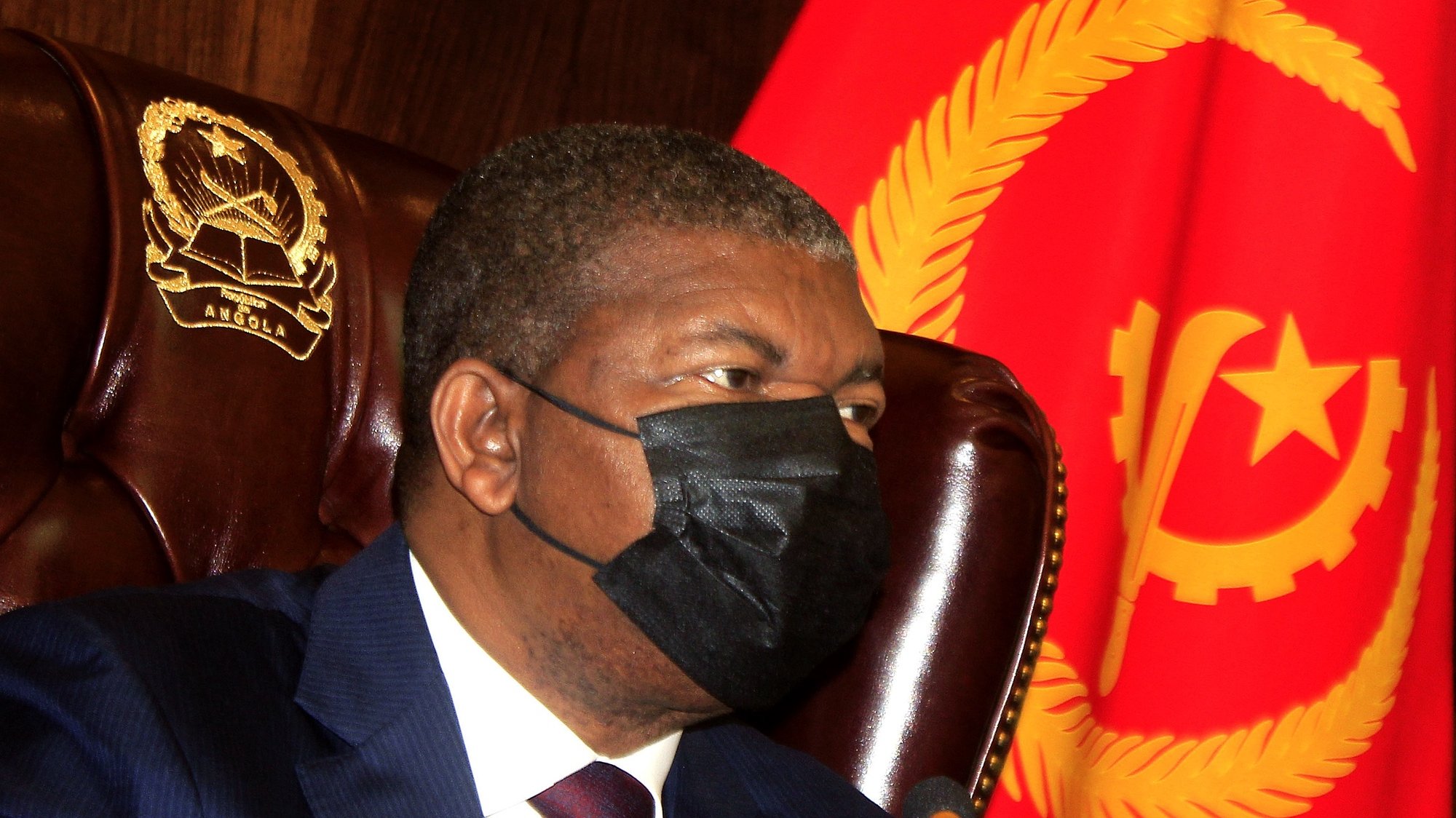The Angolan Government approved this Monday the Balance Report of the last five years of its mandate, highlighting the consolidation of the democratic State and the actions against corruption, which it considers the greatest obstacle to the development of Angola.
The document, approved at the seventh ordinary session of the Council of Ministers, led by the Angolan President, João Lourenço, also states that despite the economic and financial crisis that the country has been facing since 2014, followed by the Covid-19 pandemic , the executive worked on solve the “major problems that afflict the population” and by the resumption of economic growth in 2021, as well as by the downward trend in the unemployment rate and the general level of prices.
The executive’s focus was also on improving health and education conditions, promoting good governance and defending the rigor and transparency of public acts, combating corruption and impunity, promoting economic stability and diversifying the economy, as well as the guarantee of the fundamental rights of citizens and freedoms, the rescue of citizen values and the moralization of society”, says the final statement of the meeting.
Regarding corruption, the Angolan Government considers that is the main obstacle to the development of Angola, therefore, “measures must be adopted leading to its elimination.”
Thus, the actions carried out against corruption have produced positive effects not only in the activities carried out by the State, but also in society in general, and in the generalized perception that the phenomenon of corruption is a great social evil that must be fought harshly”, underlines the document.
At Monday’s meeting, the Grains program was also approved, which includes the National Plan for the Promotion of Grain Production (Planagrão), a document that contains the assumptions for the implementation of actions aimed at promotion of the production and supply of four priority grainsin the period 2022-2027, namely corn, rice, wheat and soybeans, to reduce the import of these products.
The Council of Ministers also approved, within the framework of the materialization of the measures contained in the Project for the Simplification of Procedures in the Public Administration (Simplifica 1.0), a diploma that establishes the Regulation for the Issuance, Attribution and Use of the License for the Internal Transfer of Corpse, a document that will authorize the requesting entity to transport or transfer a corpse from one province to another.
The aforementioned diploma, underlines the statement, in addition to filling the existing gap in this matter, also aims to simplify the procedures for the issuance of a license for the transfer or transport of corpses, eliminating the requirement of documents such as death certificate, information on the health certificate, health declaration and police declaration of transport of corpses, simply by submitting an application form, a copy of the Identity Card and Death Certificate or any other equivalent document.
In the field of public finances, the Council of Ministers approved the Financial Programming of the National Treasury for the third quarter of this year, a document that contains assumptions of income and projections of inflows of financial resources and payments, as well as operations with an impact direct and indirect in the treasury and a brief approximation to the risks that its execution implies.
The Council of Ministers approved the Medium-Term Debt Strategy 2022-2024, a public debt management instrument that aims to guide the Government to establish more specific goals and objectives in the context of contracting new financing and to manage each more efficient and prudent. analysis of the cost and risk of the debt portfolio.
According to the statement, “with this Strategy the executive intends to meet the financing needs, maintaining the balance between reducing the cost of indebtedness and maintaining the risk at sustainable levels, defining the action goals for the triennium in question.”
In the oil and gas sector, several diplomas were approved granting the national concessionaire the mining rights for prospecting, research, development and production of liquid and gaseous hydrocarbons in the concession areas of blocks COM 1 and COM 6 in the terrestrial zone. from the Baixo Congo Basin, and KON 5, KON 6, KON 8, KON 17 and KON 20 from the Kwanza Basin on land.
In the field of transport, the Presidential Decree was approved, which regularizes the public domain of the coast, in the areas of competence of the maritime-port authorities, with a view to restoring the normal use of these spaces for the exercise of profitable economic activity . activities under market conditions, in the principles of equality, competition, transparency and free enterprise.
Source: Observadora
